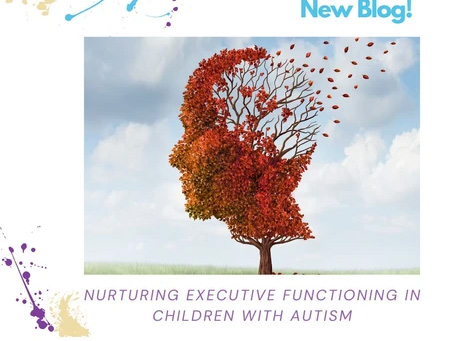Executive functioning encompasses a set of cognitive processes that enable individuals to plan, organize, initiate, and complete tasks. This includes skills such as flexibility, working memory, self-control, and problem-solving. Children with autism may experience difficulties in these areas, making it essential to tailor teaching approaches to their specific needs.
- Structured Routines: Establishing structured routines can provide a sense of predictability for children with autism. Clear schedules and visual aids help in outlining daily activities, reducing anxiety, and improving the child’s ability to transition between tasks.
- Visual Supports: Visual supports, such as visual schedules, charts, and cues, can be powerful tools for teaching executive functioning. These aids offer a visual representation of tasks and expectations, aiding in comprehension and organization.
- Break Tasks into Smaller Steps: Breaking down tasks into smaller, more manageable steps can make instructions more clear. This approach supports the child’s working memory and allows them to focus on one component at a time, facilitating successful task completion.
- Use of Social Stories: Social stories provide a narrative framework to explain social situations and expected behaviors. Crafting stories that address executive functioning skills can help to understand the reasoning behind certain actions and aids in building self-control.
- Promote Flexibility: Children with autism may struggle with changes in routine or unexpected events. Gradual exposure to changes and teaching flexibility through small adjustments can help improve adaptability and reduce stress.
- Encourage Self-Monitoring: You can teach a child to monitor their own behavior and progress. Encourage reflection on completed tasks, and provide positive reinforcement for accomplishments, fostering a sense of self-control and autonomy.
- Incorporate Special Interests: Leverage the child’s special interests to enhance engagement and motivation. Connecting executive functioning skills to subjects they are passionate about can make learning more enjoyable and meaningful.
Empowering children with autism to develop executive functioning skills requires patience, understanding, and personalized strategies. By incorporating structured routines, visual supports, and tailored approaches that consider individual strengths and challenges, educators and caregivers can create an environment that nurtures the growth of these essential skills. Ultimately, fostering executive functioning in children with autism is a collaborative journey that involves creating a supportive and inclusive atmosphere where every child can thrive.

